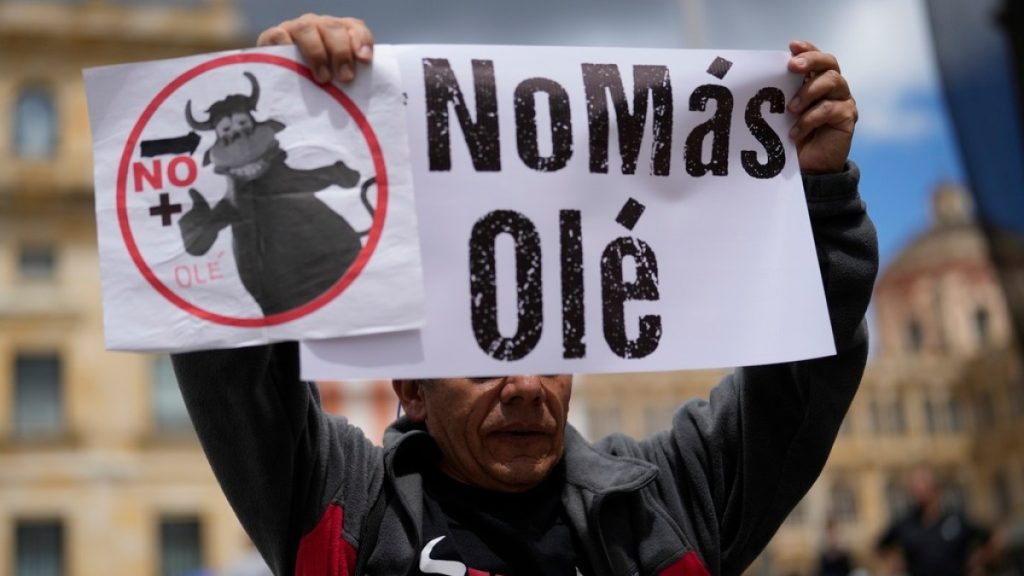In Colombia, bullfighting has been a centuries-old colonial tradition that has served as a symbol of identity for many citizens. However, in recent years, the controversial blood sport has faced declining popularity due to growing concerns about animal welfare. The country’s Congress recently passed legislation to ban bullfighting, with the bill being approved by a margin of 93-2. Activists who have long sought to prohibit the sport are now celebrating this milestone after years of political battles.
The ban on bullfighting in Colombia will be phased in over a three-year period, during which the government will be required to help find alternative employment options for the tens of thousands of people who are directly or indirectly dependent on the sector. Lawmakers hope that this ban will allow the country to move away from a culture of violence inherited from the colonial era, towards a more creative and humane society. While some see the ban as an assault on the freedoms of minorities and a loss for cities that draw thousands of visitors for these events, others view it as a step towards a more compassionate and progressive society.
Bullfighting was once a widely popular event in Colombia, with live broadcasts on multiple television networks. However, as attitudes towards animal welfare have evolved, many now find it unacceptable to witness animals suffering for the sake of entertainment. While some cities like Bogota and Medellin have imposed restrictions on bullfighting, the practice remains popular in areas like Cali and Manizales. Matador Johan Andres Paloma, who sees bullfighting as a symbol of identity for many Colombians, laments the ban as a loss of tradition for those who have been involved in the sport.
The Constitutional Court in Colombia recognised bullfighting as part of the country’s cultural tradition in 2018, but since then, some cities have taken steps to curtail the injuring or killing of bulls during these events. Despite these efforts, bullfighting continues to take place in various locations throughout Colombia, with about 300 events annually across 70 different venues. While Colombia is joining other countries in the region like Brazil, Chile, Argentina, Uruguay, and Guatemala in banning bullfighting, the blood sport remains legal in seven other countries including Ecuador, France, Mexico, Peru, Portugal, Spain, and Venezuela.
The debate over bullfighting in Colombia reflects broader societal shifts towards a more compassionate and ethical treatment of animals. While some see the ban as a positive step towards ending a cruel and outdated tradition, others view it as an infringement on cultural heritage and personal freedoms. As the country moves towards a more humane and progressive future, the ban on bullfighting represents a shift towards a society that values the well-being of all beings, both human and animal. Ultimately, the ban on bullfighting in Colombia is a reflection of changing attitudes and values in society, as people seek to move towards a more compassionate and sustainable way of life.


